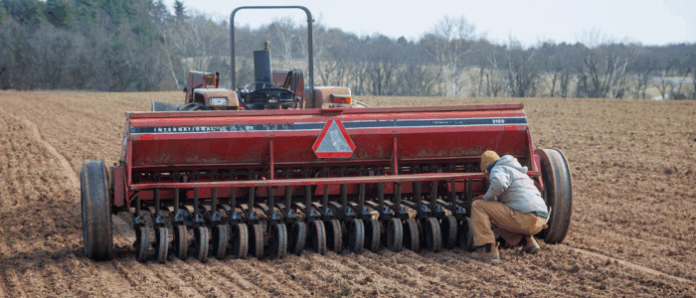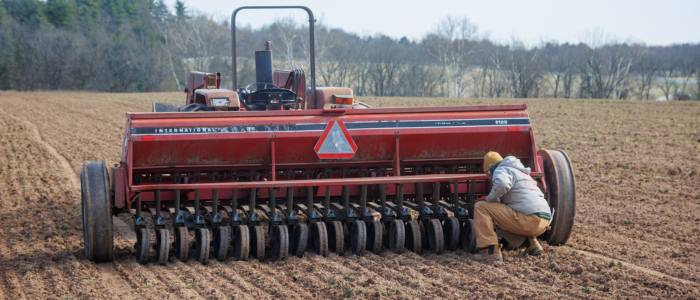

By ALISON MITCHELL
Executive director, New Jersey Conservation Foundation
When we imagine local food, we might picture sun-ripened Jersey tomatoes or a table of produce at the weekend farmer’s market. But what about the bread for our sandwiches, the oats in our granola, or the flour in our Sunday morning pancakes?
Grains are the foundation of most American diets, and yet they’re often left out of the conversation around local, healthy food.
“Good Grain” – a new documentary produced in partnership with the Northeast Organic Farming Association of New Jersey – offers a fresh look at sustainable agriculture, which seeks a balance among food production, a healthy environment and the well-being of those involved.
The film captures golden fields of waving wheat; rustic sacks of flour; and the quiet, methodical work of people reimagining what local food can be. The result is a visual feast that serves as a reminder of the abundance Earth provides when we work in concert – rather than in combat – with natural systems.
“Growing grain organically seems like the next step for the sustainable agriculture movement,” says Jared Flesher, “Good Grain” filmmaker. Comparing it to other crops like vegetables, he notes, “You need a little more land, a little more equipment, and you need a mill. You also need a market.”
Facilities dedicated to cleaning, drying, storing and milling grain have vanished at the local level. Without access to that infrastructure, small-scale organic farmers who grow grain struggle to bring their crops to market.
“Most grain in New Jersey is grown conventionally and sold into the global commodity system,” explains Devin Cornia, executive director of the farming association. “There’s a real desire among farmers to grow organically and serve local markets, but the processing system just isn’t there yet. That’s what ‘Good Grain’ is about – rebuilding that lost middle.”
The industry typically uses heavy applications of synthetic fertilizers, pesticides and herbicides like Roundup. Unfortunately, those chemicals are linked to soil degradation, loss of biodiversity and severe health risks for humans. In contrast, the farmers featured in “Good Grain” build healthy soil and embrace older, hardier varieties of grain like einkorn that thrive without chemicals.
Making the switch to local grain requires a leap of faith.
“Farming is already inherently risky,” says Cornia. “You could plant the right seed; care for the soil; steward the land; and then have a weather event, a pest, a disease – and it’s all gone. So asking farmers to take on even more risk by switching practices, or entering an uncertain market, is a massive ask.”
Yet, the rewards are profound. Local grain can be a good boost to area economies, it fosters healthier eating habits and it protects our environment by protecting soil and water while reducing harm to wildlife. As consumers, we can help build momentum for this new movement by seeking out local grains to add to our diets.
“Good Grain” premieres this month at the Pinelands Preservation Alliance and will tour the state in 2026. Visit nofanj.org/goodgrain to find information about where to buy local grain, upcoming classes and events, and more.
